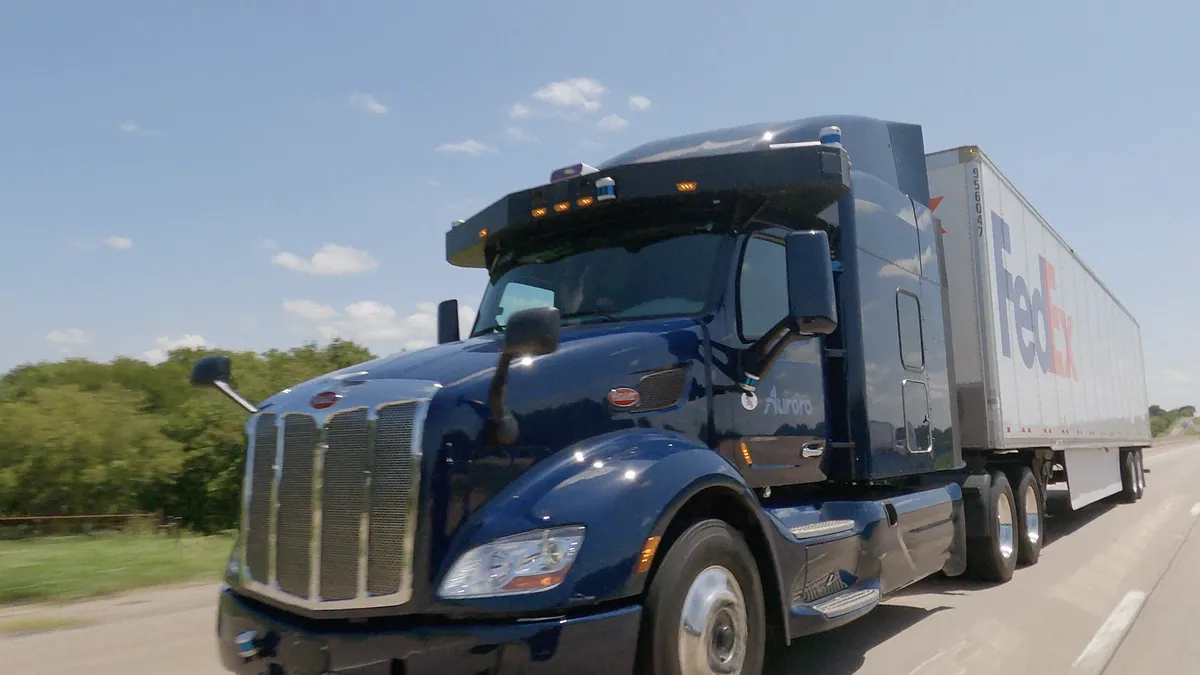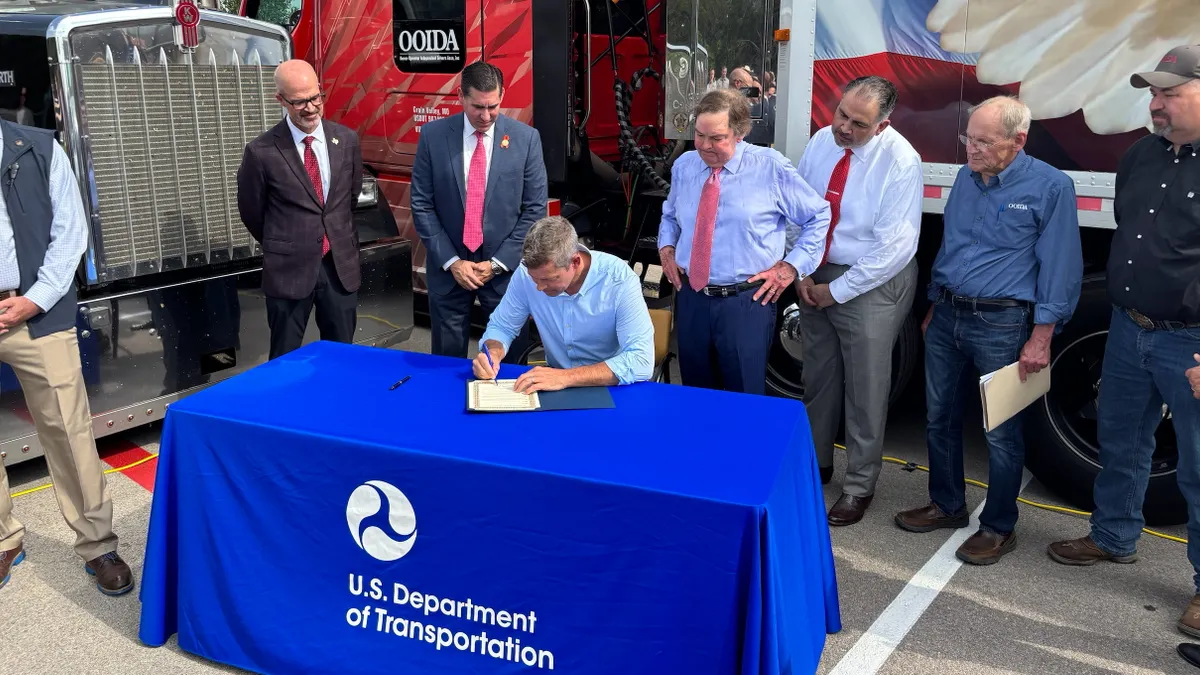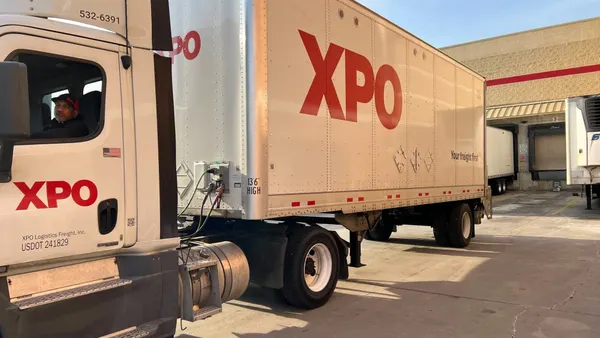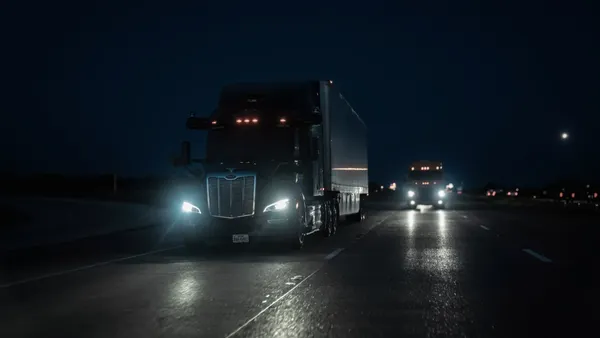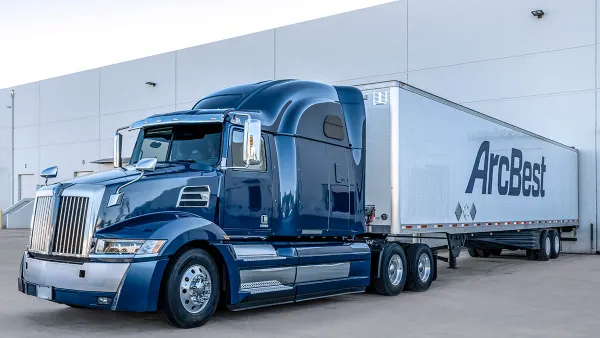UPDATE: May 19, 2022: FedEx and trucking startup Aurora expanded their Texas-based pilot program to test the use of autonomous vehicles within the carrier's linehaul operations, the companies announced Wednesday. In March, the pair added a 600-mile route between Fort Worth and El Paso.
Aurora is completing the route on a weekly basis with a safety driver in the truck, and the company plans to increase the frequency of trips in the coming months. To date, the companies have completed 60,000 trips as part of the pilot program.
Dive Brief:
- FedEx is teaming up with Paccar and autonomy developer Aurora to test autonomous vehicles, according to a press release Wednesday. Aurora's technology will be installed in Paccar's Autonomous Vehicle Platform trucks, to be trialed in FedEx linehaul operations.
- The companies are running the pilot, which began Wednesday, along FedEx's Dallas-Houston parcel lanes in Texas on Interstate 45. The vehicles are set to make the nearly 500-mile trip multiple times a week, operating autonomously with a backup driver.
- Paccar announced a partnership with Aurora in January to develop, test and commercialize autonomous Peterbilt and Kenworth trucks. The pilot with FedEx represents "excellent progress" on that original partnership, Paccar said.
Dive Insight:
Autonomous trucks seem like a concept in a far-distant future. But analysts, such as McKinsey, estimate they'll be on the roadways without safety drivers in as little as four years from now.
That projection means fleets, technology companies and OEMs need to get involved and make progress marrying the equipment and the operations.
"It's technology that continues to change rapidly," J.B. Hunt Chief Sustainability Officer Craig Harper said during the Council of Supply Chain Management Professionals Edge conference in Atlanta on Monday. If fleets get involved now, they "won't be playing catch up," he added.
J.B. Hunt is partnering with Waymo to move freight autonomously, also along I-45 in Texas. Other fleets have chosen to partner with other technology providers; several have picked TuSimple.
UPS, the U.S. Postal Service, Werner, U.S. Xpress, Penske and Schneider have all signed onto work with TuSimple in some capacity, the latter three putting in equipment reservations. Navistar is TuSimple's OEM partner, and the two aim to begin production in 2024.
"We feel autonomous will be a significant component of the trucking industry in the decades to come, so investing time and resources now is a longer-term strategic play," Eric Fuller, CEO of U.S. Xpress, told Transport Dive via email in July. "While we have plenty of other areas of focus, we're keeping autonomous near the top of our priority list."
For FedEx, rapid e-commerce growth has given the carrier more reason to push forward with autonomy. According the press release, FedEx is looking to AVs to improve safety, efficiency and productivity.
J.B. Hunt feels the need to be involved with in the autonomy trend, learning about and experimenting with the technology, Harper said. That way, it can spot issues and help the equipment providers address them.
"We just want to have a seat at the table," he said.


